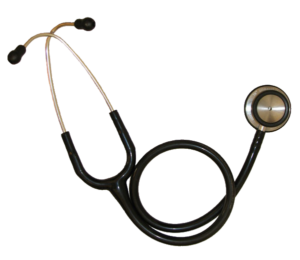
A study has given further support to the view that eating prunes (dried plums) has health benefits. Penn State University researchers reviewed studies and found that eating prunes may help protect against bone loss in postmenopausal women, as well as having anti-inflammatory and antioxidative effects. All good!
A good amount to eat (according to the studies reviewed) is about 100 grams or 10 prunes (dried plums) each day.
But... don't just focus on eating prunes (dried plums) as a healthy food. Eating several servings of a variety of fruits every day (whether fresh, frozen, or dried) has numerous health benefits and should be part of your regular diet. Fruit is anti-inflammatory, great for the gut microbes, high in fiber, and contains minerals and nutrients. Enjoy!
From Science Daily: Eating prunes may help protect against bone loss in older women
It's already well known that prunes are good for your gut, but new Penn State research suggests they may be good for bone health, too. ...continue reading "Adding Prunes to the Diet Has Health Benefits"



 Once again research finds health benefits from consumption of olive oil. A recent
Once again research finds health benefits from consumption of olive oil. A recent  As we get older, we may notice that we're forgetting things, or we're having trouble remembering names, or... And we wonder if we're starting to "lose our mind" and developing dementia.
As we get older, we may notice that we're forgetting things, or we're having trouble remembering names, or... And we wonder if we're starting to "lose our mind" and developing dementia. Over the course of the last two decades there have been changes in the American diet. A recent
Over the course of the last two decades there have been changes in the American diet. A recent  Bottom line: try to increase your intake of real whole foods, and decrease your intake of ultra-processed foods. This
Bottom line: try to increase your intake of real whole foods, and decrease your intake of ultra-processed foods. This  While many doctors encourage routine medical check-ups for healthy adults each year, others have raised doubts whether this is really necessary. There is also the issue of overdiagnosis and overtreatment, which may actually cause harm.
While many doctors encourage routine medical check-ups for healthy adults each year, others have raised doubts whether this is really necessary. There is also the issue of overdiagnosis and overtreatment, which may actually cause harm. It has long been known that eating oily fish (e.g. salmon, sardines) has health benefits for the heart. But it also looks like regularly eating sardines may be a good way to lower the risk of getting type 2 diabetes, as well as improving heart health.
It has long been known that eating oily fish (e.g. salmon, sardines) has health benefits for the heart. But it also looks like regularly eating sardines may be a good way to lower the risk of getting type 2 diabetes, as well as improving heart health. The study found that higher levels of physical activity can reduce or remove this association of overweight & obesity and reduced brain blood flow. So if it's not possible to lose weight - then get really physically active!
The study found that higher levels of physical activity can reduce or remove this association of overweight & obesity and reduced brain blood flow. So if it's not possible to lose weight - then get really physically active!